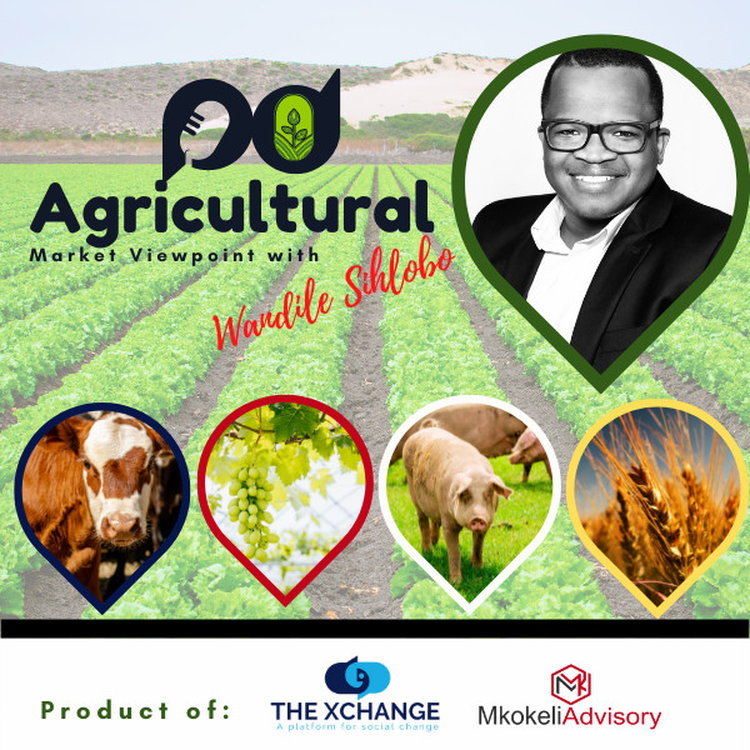
SA has the second-largest maize harvest on record
Loading player...
With summer crop harvest underway across South Africa, the recent production estimates are more reliable and reflect the large yields farmers continue to reap. Hence, we were not surprised when South Africa's Crop Estimates Committee lifted the country's 2022/23 commercial maize production estimate by 1% from last month to 16,35 million tonnes.
This crop is 6% more than the 2021/22 season and the second-largest harvest on record. The expected ample harvest is primarily on the back of large yields, as the area planted is slightly down from the 2021/22 season. About 8,64 million tonnes is white maize, with 7,71 million tonnes being yellow maize.
A crop of 16,35 million tonnes implies South Africa will have sufficient supplies to meet domestic maize needs of roughly 11,40 million tonnes and have over 3,00 million tonnes for export markets in the 2023/24 marketing year.
The soybeans harvest was unchanged from May's record estimate of 2,76 million tonnes (up 24% y/y). The annual crop improvement is due to an expansion in the area planted and higher yields. The ample soybeans harvest means South Africa could meet its domestic demand and remain with over 300 000 tonnes of soybeans for export markets. This soybean export expansion is a new territory for South Africa, which until recently, had been a net importer of soybeans and soybean products, and positive for the agricultural trade balance.
However, the sunflower seed production estimate was lowered by 5% from last month at 758 610 tonnes (down 10% y/y). The annual decline in the sunflower seed production forecast mirrors the reduced planted area and yields in some areas.
Sorghum production estimate is down 1% from last month and now estimated at 103 870 tonnes (up 1% y/y). Other small crops, such as groundnuts and dry beans, were left unchanged from last month at 51 510 tonnes (up 6% y/y) and 48 560 tonnes (down 8% y/y), respectively.
Overall, South Africa has big summer grain and oilseed harvest, and the recent rains did not cause quality issues as some may have feared.
From a grain’s consumer perspective, these data bode well with the already softening maize and oilseed prices and reinforce our view of a possible moderation in grains-related food product prices in the food inflation basket.
We discuss more in this week's podcast segment.
My writing on agricultural economic matters is available on my blog: https://wandilesihlobo.com/
Podcast production by: Lwandiso Gwarubana, Richard Humphries, and Sam Mkokeli
This crop is 6% more than the 2021/22 season and the second-largest harvest on record. The expected ample harvest is primarily on the back of large yields, as the area planted is slightly down from the 2021/22 season. About 8,64 million tonnes is white maize, with 7,71 million tonnes being yellow maize.
A crop of 16,35 million tonnes implies South Africa will have sufficient supplies to meet domestic maize needs of roughly 11,40 million tonnes and have over 3,00 million tonnes for export markets in the 2023/24 marketing year.
The soybeans harvest was unchanged from May's record estimate of 2,76 million tonnes (up 24% y/y). The annual crop improvement is due to an expansion in the area planted and higher yields. The ample soybeans harvest means South Africa could meet its domestic demand and remain with over 300 000 tonnes of soybeans for export markets. This soybean export expansion is a new territory for South Africa, which until recently, had been a net importer of soybeans and soybean products, and positive for the agricultural trade balance.
However, the sunflower seed production estimate was lowered by 5% from last month at 758 610 tonnes (down 10% y/y). The annual decline in the sunflower seed production forecast mirrors the reduced planted area and yields in some areas.
Sorghum production estimate is down 1% from last month and now estimated at 103 870 tonnes (up 1% y/y). Other small crops, such as groundnuts and dry beans, were left unchanged from last month at 51 510 tonnes (up 6% y/y) and 48 560 tonnes (down 8% y/y), respectively.
Overall, South Africa has big summer grain and oilseed harvest, and the recent rains did not cause quality issues as some may have feared.
From a grain’s consumer perspective, these data bode well with the already softening maize and oilseed prices and reinforce our view of a possible moderation in grains-related food product prices in the food inflation basket.
We discuss more in this week's podcast segment.
My writing on agricultural economic matters is available on my blog: https://wandilesihlobo.com/
Podcast production by: Lwandiso Gwarubana, Richard Humphries, and Sam Mkokeli

